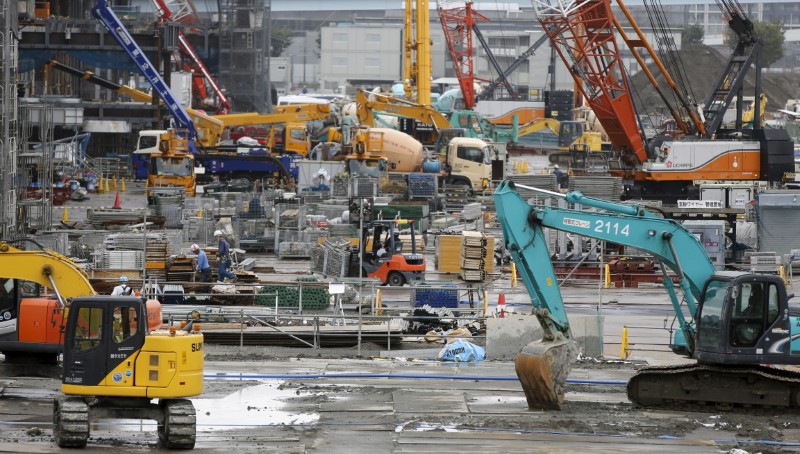By Tetsushi Kajimoto
TOKYO (Reuters) - Japan's core machinery orders fell more than expected in April, casting doubt on the strength of companies' capital spending and adding to concerns about the country's fragile economic recovery.
The 3.1 percent fall in the core orders from a month earlier was much bigger than the 1.3 percent decline expected by economists in a Reuters poll, potentially dragging on economic growth in the current quarter.
It also marked the first drop in three months, following a 1.4 percent increase in March, the Cabinet Office data showed.
Though the machinery order data, which excludes ships and orders from the electric power utilities, is highly volatile, it is regarded as an indicator of capital spending in the coming six to nine months.
The reading follows a surprisingly sharp downward revision to first-quarter economic growth, as a reduction in inventories put annualized growth at 1.0 percent, much slower than the initially estimated 2.2 percent.
More recently, a run of indicators and business activity surveys have pointed to still solid exports and factory output, although wage growth and household spending remain stubbornly sluggish despite a tightening job market.
Policymakers are hoping that Japanese firms will tap their hefty profits to spur investment and boost wages to stoke a sustainable growth cycle.
"Capital expenditure will likely remain lackluster in the current quarter," said Koya Miyamae, senior economist at SMBC Nikko Securities.
"Exports and factory output are performing well on the back of global economic recovery and a weak yen, but uncertainty over U.S. President (Donald) Trump's trade policy makes Japanese firms hesitant about domestic investment."
By sector, core orders from manufacturers rose 2.5 percent in April, up for a third straight month.
The gains were led by orders from electrical machinery companies for semiconductor production equipment and computers, and all-purpose industrial machinery firms.
Orders from the services sector fell 5.0 percent, dragged down by orders from financial and insurance firms for computer systems, down for a second consecutive month.
"The 3.1 percent may appear a big drop, but overall core orders held firm, centering on manufacturers," said a senior Cabinet Office official.
Orders from manufacturers would have logged a double-digit gain if a one-off pullback in orders from nonferrous metal firms for nuclear-powered motors was excluded.
Orders from abroad, which were not counted as core orders, jumped 17.4 percent in April, up for the first time in three months.
The Cabinet Office stuck to its assessment of machinery orders, saying the pick-up was stalling, using the same assessment for an eighth straight month.
Still, the Bank of Japan is set to upgrade its economic assessment as early as this week to signal its growing conviction the recovery is gathering momentum, people familiar with its thinking told Reuters last week.

Such an upgrade would reinforce expectations that the BOJ's next move would be to tighten monetary policy, though analysts do not expect it will begin to do so anytime soon.